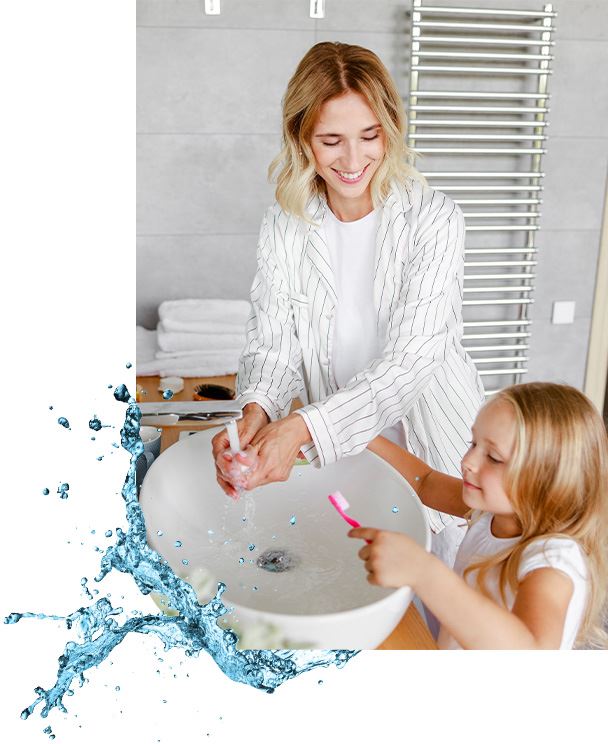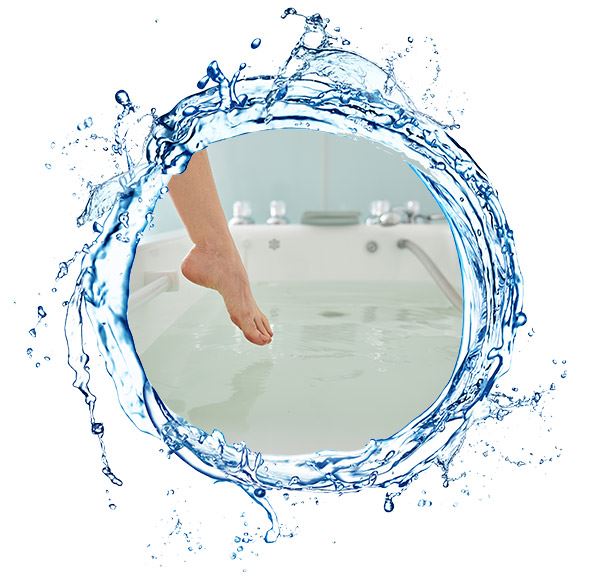
The FONTUS Guide to Radon & Uranium in Maine’s Well Water
So, how does Radon & Uranium get into Maine’s Well Water? Uranium is a naturally occurring element found in rocks. Not all rocks contain Uranium. However, Maine has a literal bedrock foundation; it is common to see Uranium in the Northeast. The Department of Agriculture, Conservation and Forestry points out that “Some of the most beautiful scenery in Maine is where the rugged bedrock is exposed to view – along the “rock-bound” coast at Portland Head Light or Pemaquid, or on bare mountain tops such as Mount Katahdin, Cadillac Mountain, the Camden Hills, or Mount Kineo. In fact, the general distribution and shape of Maine’s mountainous and lowland terrains are controlled by the way different kinds of bedrock have been eroded differently through geologic time.” Uranium breaks down very slowly into other elements, including radium and radon gas.
What Is Radon?
We can’t talk about radon until we talk about Uranium. Uranium is a metal that can be found worldwide; it makes up about 2 to 4 parts per million of most rocks. According to the U.S. Department of Energy, uranium is 40 times more plentiful than silver. It’s also radioactive.
When Uranium breaks down, it produces radon, a colorless, odorless, tasteless, and radioactive gas that can cause cancer. It occurs in soil and rock and can also dissolve into water. Therefore, areas with granite, granitic sand, and gravel formations tend to have high radon levels in groundwater. If you live in such an area, that water can easily get into your well.
Radon in water can increase the chances of you or your family members developing cancer. The Maine Bureau of Health recommends that radon in drinking water be no more than 4,000 pCi/L. Unfortunately, studies have shown that nearly one in five Maine wells has high or higher radon concentrations.
The bottom line is that if your water comes from a private well, you should test the water for radon and uranium.

Our Customers Love Us
Read Our Raving Reviews!
-
Really appreciated that they took on our problems as their own and helped us out when we really needed it.- Aaron M.
-
Highly recommend their company for any water service needs! Adam really knew his stuff. Wish we had FONTUS working with us from the start.- Kimberly C.
-
I was impressed he could be there so quickly! He had our problem resolved very quickly! I couldn’t be more happy with them!!!- Jenelle D.
-
Amazing install team!! Highly recommend Fontus! From the on-site review of our water system and all the issues to the recommendations, price and Install team- Cynthia B.
-
From the initial call to the assessment & installation, they were top-notch - prompt, professional & courteous.- Donna R.
-
I 100% recommend Fontus. Work was explained clearly, with no pressure sales tactics, and super quick installation.- Bennet W.
-
The step-by-step plan gave my wife and me the assurance that we would only be purchasing what we needed for our plumbing needs. The attention to detail on installation was impressive, and the customer service throughout the process has been timely and thor- Thomas D.
Can Radon & Uranium in Water Be Treated?
HOW FONTUS CAN HELP
The good news is that if you have radon or Uranium in your water, there are several options you can choose from to remove it. Give FONTUS a call; we’ll be right out to provide a free immediate-response water test.
WHAT IS A FREE IMMEDIATE-RESPONSE WATER TEST?
The FONTUS experts will provide a free immediate-response water test onsite. In addition, we will also correctly collect the state-certified approved samples needed for an arsenic test for you. Then we send them to a state-certified Maine Lab for a TSFHA water test. The TSFHA Water Test will test for Coliform Bacteria & E. coli (pos/neg), Nitrate, Nitrite, Fluoride, Chloride, Hardness, Copper, Iron, pH, Manganese, Color, Turbidity, Sodium, Uranium, Lead, Arsenic, and Magnesium in your water. This test will be an additional charge determined by the lab and paid to the lab.


Why Choose Us?
The Choice Is Clear
-
We Highly Value Our Customers & Provide an Excellent Experience
-
Our Focus is You and Your Access to Pure, Clean Water
-
We Guarantee Excellent Service & Longevity In Our Systems

